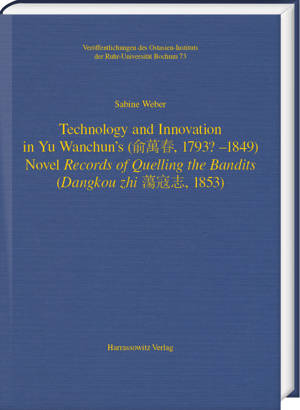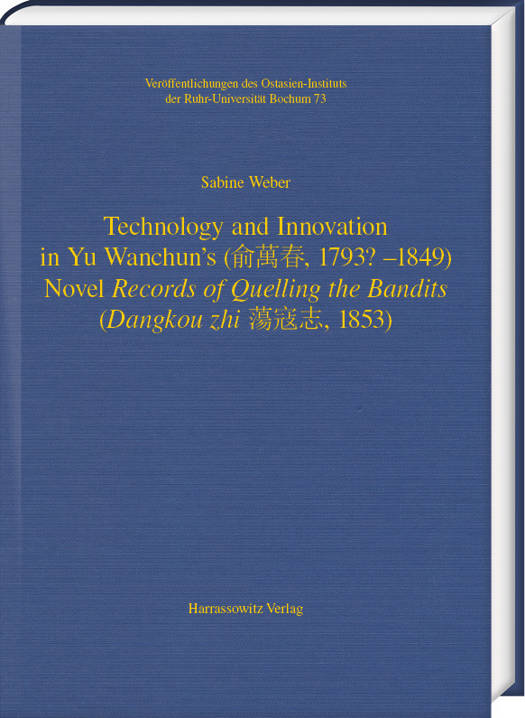
Bedankt voor het vertrouwen het afgelopen jaar! Om jou te bedanken bieden we GRATIS verzending (in België) aan op alles gedurende de hele maand januari.
- Afhalen na 1 uur in een winkel met voorraad
- In januari gratis thuislevering in België
- Ruim aanbod met 7 miljoen producten
Bedankt voor het vertrouwen het afgelopen jaar! Om jou te bedanken bieden we GRATIS verzending (in België) aan op alles gedurende de hele maand januari.
- Afhalen na 1 uur in een winkel met voorraad
- In januari gratis thuislevering in België
- Ruim aanbod met 7 miljoen producten
Zoeken
Technology and Innovation in Yu Wanchun's (俞萬春, 1793? - 1849) Novel Records of Quelling the Bandits (Dangkou Zhi 蕩寇志, 1853)
Sabine Weber
Hardcover | Engels | Veröffentlichungen des Ostasien-Instituts der Ruhr-Universität, Bochum | nr. 73
€ 189,95
+ 379 punten
Omschrijving
As the first book-length study devoted exclusively to developments of Chinese science fiction before 1902, Sabine Weber explores the question of how to relate the early literary elements to the later, self-conscious modern forms and unite them in a comprehensive history of Chinese science fiction. By taking Yu Wanchun's (俞萬春, 1793?-1849) sequel to Jin Shengtan's (金聖歎, 1608-1661) rendition of The Water Margin (Shuihu zhuan 水滸傳, 1644) Records of Quelling the Bandits (Dangkou zhi 蕩寇志, 1853) as a primary source she also analyzes the specific role of the literary 19th century in the history of the emergence of science fiction in China. The novel of the Late Qing period (ca. 1793-1896) represents a special case in the historical process, as it developed structural and motif-oriented patterns that brought it close to structurally "modern" science fiction in terms of the epistemological basis of Chinese science and technology history. Written in the style of the classic Water Margin, but by a militarist thinker from the background of jingshi zhiyong 經世致用 (literally meaning "managing the world by extending practical utility") in 19th-century Jiangnan, Records of Quelling the Bandits serves as a vivid example of how contemporary Chinese discourses of innovation and practical knowledge were imbedded in established literary frameworks. It was this combination of rationality and pragmatism with classical poetics and literary motifs that pushed images of traditional fiction, hearsay and legend towards speculative technology and theoretical thought experiments, thus providing the basis for the translation-inspired early modern science fiction novel from the end of the century.
Specificaties
Betrokkenen
- Auteur(s):
- Uitgeverij:
Inhoud
- Aantal bladzijden:
- 366
- Taal:
- Engels
- Reeks:
- Reeksnummer:
- nr. 73
Eigenschappen
- Productcode (EAN):
- 9783447122627
- Verschijningsdatum:
- 18/12/2024
- Uitvoering:
- Hardcover
- Formaat:
- Genaaid
- Afmetingen:
- 178 mm x 22 mm
- Gewicht:
- 1778 g

Alleen bij Standaard Boekhandel
+ 379 punten op je klantenkaart van Standaard Boekhandel
Beoordelingen
We publiceren alleen reviews die voldoen aan de voorwaarden voor reviews. Bekijk onze voorwaarden voor reviews.









